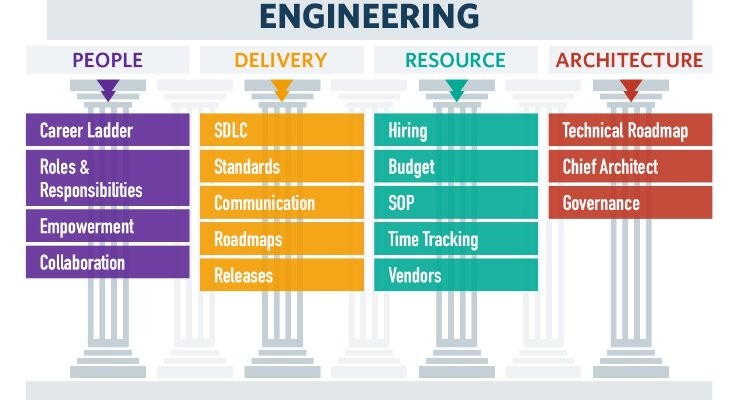Engineering: A Comprehensive Exploration of the Pillar of Innovation
Computer science
Introduction:
Engineering, the dynamic interplay of science and creativity, stands at the forefront of human progress, shaping the world we live in and driving innovation across diverse fields. This detailed exploration aims to unravel the multifaceted landscape of engineering, delving into its rich history, the myriad disciplines it encompasses, its profound impact on society, the challenges it confronts, and the trailblazing innovations that define its future trajectory.
The Evolution of Engineering: Ancient Engineering Marvels:
Engineering, in its rudimentary form, dates back to ancient civilizations where human ingenuity manifested in awe-inspiring structures. From the Great Pyramids of Egypt to the aqueducts of Rome, these early engineering marvels laid the groundwork for the principles that would govern the discipline.
The Renaissance and the Birth of Modern Engineering:
The Renaissance marked a resurgence of interest in science and art, with polymaths like Leonardo da Vinci embodying the spirit of interdisciplinary exploration. The Industrial Revolution catapulted engineering into the modern era, driving mechanization, technological advancement, and the birth of distinct engineering disciplines.
The Diverse Disciplines of Engineering: Civil Engineering:
Civil engineering, often considered the backbone of infrastructure development, involves the design, construction, and maintenance of structures critical to society. From bridges and roads to dams and skyscrapers, civil engineers shape the physical environment.
Disciplines within Civil Engineering: Structural Engineering:
Structural engineers design and analyze structures to withstand the forces they encounter. From towering skyscrapers to intricate bridges, their work ensures the safety and stability of the built environment.
Geotechnical Engineering:
Dealing with the Earth’s materials, geotechnical engineers assess soil conditions and rock mechanics to provide foundations for structures. They play a critical role in mitigating natural hazards such as landslides and earthquakes.
Transportation Engineering:
Transportation engineers focus on the planning and design of transportation systems, including roads, bridges, and railways. Their work contributes to efficient and sustainable movement of people and goods.
Environmental Engineering:
With a commitment to sustainability, environmental engineers address challenges such as waste management, water treatment, and pollution control. Their efforts aim to create a harmonious balance between human activities and the environment
Water Resources Engineering:
Water resources engineers manage water-related issues, from designing dams and irrigation systems to addressing water quality and sustainable water usage. Their work is crucial for managing this invaluable resource.
Civil Engineering Impact on Society: Infrastructure Development:
Civil engineers are the architects of essential infrastructure. They design and build bridges, roads, tunnels, and buildings, creating the physical framework that supports modern societies.
Urban Planning:
In collaboration with urban planners, civil engineers contribute to the design of cities and communities. Their work ensures sustainable land use, efficient transportation, and the provision of essential services.
Disaster Resilience:
Civil engineers play a crucial role in disaster preparedness and recovery. They design structures to withstand natural disasters and contribute to the development of resilient communities.
Water Management:
Water resources and environmental engineers work to ensure a sustainable and safe water supply. From water treatment plants to flood control systems, their efforts safeguard communities against water-related challenges.
Water Management:
Water resources engineers manage water-related issues, from designing dams and irrigation systems to addressing water quality and sustainable water usage. Their work is crucial for managing this invaluable resource.
Challenges in Civil Engineering: Sustainability:
Sustainable practices are at the forefront of civil engineering challenges. Engineers strive to minimize the environmental impact of projects, emphasizing eco-friendly materials and energy-efficient designs.
Aging Infrastructure:
Many regions grapple with aging infrastructure that requires maintenance and rehabilitation. Civil engineers are tasked with upgrading and modernizing existing structures to meet current standards.
Related Posts
Pharmacy Trends and Industry Insights
Pharmacy Trends and Industry Insights The Pharmacy Industry: Transformative Trends and Future Prospects The pharmacy industry is experiencing rapid transformation, fueled by technological innovations, changing healthcare priorities, and the evolving expectations of patients. As pharmacists take on broader roles that
Microservices Security Challenges in Large-Scale Systems
In the ever-evolving world of software development, microservices architecture has emerged as a popular choice for building scalable, maintainable, and resilient applications. By breaking down applications into smaller, independent services that communicate with each other, microservices enable organizations to develop
The Ancient Art of Healing
Traditional medicines refer to the knowledge, skills and practices based on the theories, beliefs and experiences indigenous to different cultures, used in the maintenance of health and in the prevention, diagnosis, improvement or treatment of physical and mental illness. Traditional


